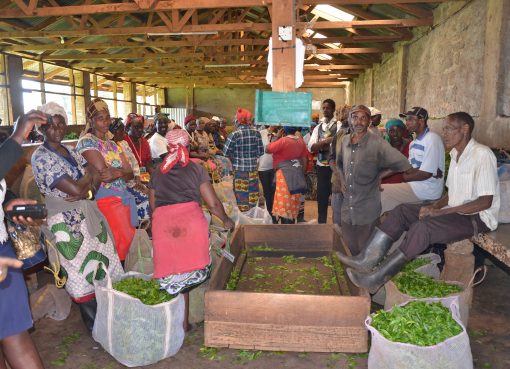The creative industry has been assured of their property rights and protection of revenues as the Chief Justice Martha Koome has sworn in the copyright tribunal.
Koome said that the tribunal is one of the institutions that are intended to further the objectives of Article 40(5) of the Constitution which instructs the State to support, promote and protect the intellectual property rights of the people of Kenya.

Speaking Monday during swearing in ceremony of the Copyright Tribunal, Koome congratulated the Chairperson, Ms. Elizabeth Lenjo and other tribunal members on their competitive recruitment, appointment, and installation to steer the organisation for a period of five years.
“The tribunal is supposed to be a key cog in the institutional framework that enable the creative industry to thrive,” said the CJ.
She highlighted that the success of the Copyright Tribunal has an impact on fostering creativity and a bearing on the success of ‘our arts and cultural industry.’
“This is because these ‘post-industrial’ aspects of our economy rely upon Copyright law to establish property rights and protect revenues. Therefore, you must robustly enforce copyright law for our creatives and other authors of different forms of work to earn a living and benefit from their works and innovations,” said Koome.
The CJ also congratulated Mzee Leonard Mambo Mbotela on his appointment and swearing in as a member of the National Heroes Council saying that he is a national hero in his own right.
“The mandate of the National Heroes Council that includes the identification, selection and honouring of national heroes is an important one as our national story is largely the story of the contribution of our heroes to the project of nation building. Thus, it is imperative that we celebrate and appreciate our heroes and heroines,” she said.
The CJ said that when we do not have sufficient national sensitization, we tend to ignore the stories of ordinary people doing extra-ordinary things to make our world a better place.
“We also tend to celebrate our heroes and heroines only upon their death. I urge you and other Council members to reverse this long-standing trend so that we can build a new culture and practice of identifying, celebrating, and supporting our unsung heroes and heroines when they are still with us. That is the only modest way through which we can show appreciation for their heroic acts,” said Koome.
She said that it is by doing this that we set them up as role models to be emulated by young people. In that way we are also building up our value system as a nation.
“This dual swearing-in is indicative of the symbiosis that the Arts and Copyright law share –for one to thrive, the other must be effective. In this regard, I urge you to align the operations of the Copyright Tribunal with the ethos of ‘Social Transformation through Access to Justice’ Vision through which we are striving to ensure that all those within our borders have access to accessible, expeditious, cost-effective, and efficient system of justice,” said the CJ.
By doing this, said the CJ, we will play a role in ensuring that our talented and creative artists and authors can make a career, earn a living, and flourish from their work by protecting their intellectual property rights insisting that this is the form of social transformation that our Constitution aspires to when it protects intellectual property as a human right.
By Joseph Ng’ang’a





